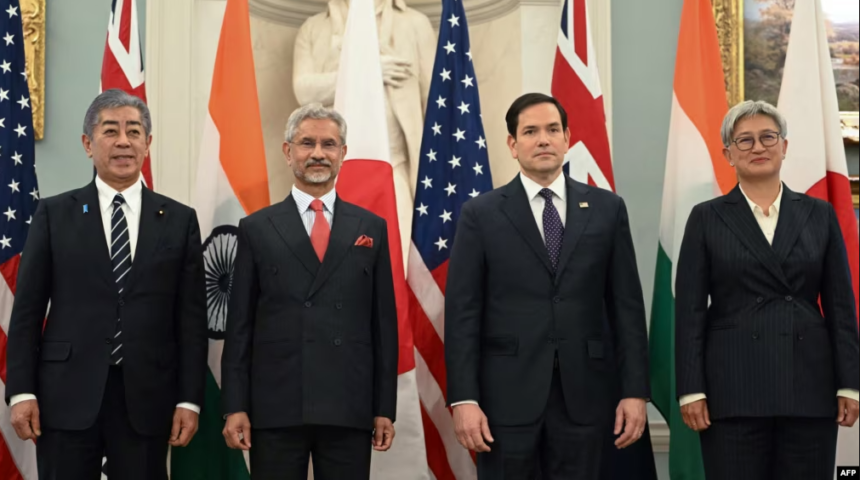On his first day as U.S. Secretary of State, Marco Rubio emphasized the importance of peace in global affairs, framing it as a cornerstone of U.S. national interests. Addressing State Department employees, Rubio outlined his foreign policy priorities and stressed the strategic value of avoiding conflicts.
“Without peace, it is difficult to be a strong, prosperous nation in the best position,” Rubio said, adding that such efforts must not come at the expense of U.S. national security, interests, or core values.
Strengthening Indo-Pacific Alliances
Rubio also met with foreign ministers from India, Australia, and Japan, reinforcing commitments within the Quad—a security alliance aimed at countering China’s military and economic ambitions in the Indo-Pacific region.
This meeting aimed to dispel concerns about former President Donald Trump’s “America First” policy and reaffirm U.S. leadership among its allies.
Yun Sun, an analyst at the Stimson Center, described the meeting as a “clear signal” that the U.S. remains committed to supporting its regional allies against China’s growing influence.
China’s Perspective
China views the Quad as a Cold War-era construct, criticizing U.S. efforts to align with regional partners as fostering isolation and confrontation. However, analysts argue that China’s military modernization and nuclear arsenal expansion are pushing regional countries closer to the U.S.
The Quad’s united stance underscores a strategic effort to ensure stability and balance in the Indo-Pacific region amid rising tensions with Beijing.







